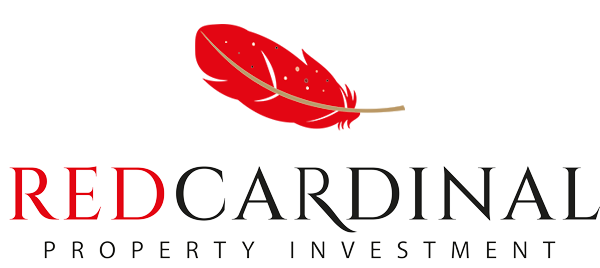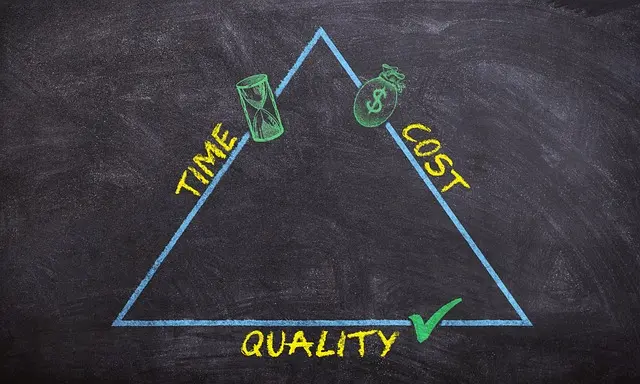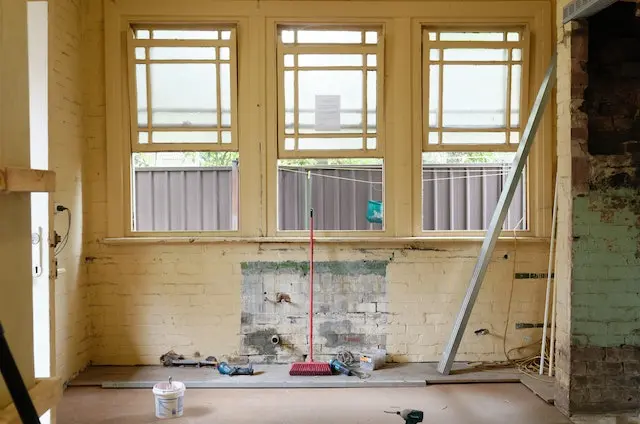Maximising property flipping profits, a popular real estate investment strategy in the United Kingdom, involves buying a property, renovating it, and then quickly selling it for a profit. This practice has gained significant traction among investors seeking lucrative opportunities in the dynamic property market. Maximising profits is of paramount importance in property flipping, as it directly impacts the financial success of the venture and the overall return on investment (ROI).
Definition of Property Flipping
Property flipping refers to the process of purchasing a property, often in a distressed or undervalued state, with the intention of renovating it to enhance its market value and then reselling it swiftly at a higher price. The goal is to capitalize on the property’s potential appreciation or improvement while minimizing the holding time to generate substantial profits.
Importance of Maximising Profits
In the realm of property flipping, maximising profits is crucial for several reasons
Enhancing Return on Investment (ROI): By implementing effective profit-maximising strategies, investors can significantly increase their ROI. This ensures that the time, effort, and capital invested in the property flipping venture yield substantial financial rewards.
Moreover, Generating Sustainable Cash Flow: Maximising profits enables investors to generate consistent cash flow from property flipping projects. The higher the profit margin, the greater the potential for reinvestment in future ventures, fostering a sustainable and profitable business model.
Additionally, Capitalizing on Market Opportunities: The property market is subject to fluctuations, and seizing favorable opportunities requires careful analysis and astute decision-making. By maximising profits, investors can capitalize on these market opportunities, such as purchasing properties at discounted prices or selling during periods of high demand.
Furthermore, Building a Strong Reputation: Successful property flipping ventures that maximise profits contribute to building a positive reputation in the industry. A track record of profitable projects attracts potential investors, lenders, and partners, opening doors to future collaborations and expanding business opportunities.
Lastly, Mitigating Risks and Uncertainties: The property market is not without risks and uncertainties. Maximising profits serves as a buffer against potential setbacks, unexpected expenses, or market downturns. Higher profits act as a cushion, empowering investors to navigate challenges effectively and safeguard their financial interests.
Finding and Acquiring Properties
In the competitive world of property flipping, identifying potential opportunities and executing strategic approaches are vital for maximising profits. This section explores key strategies that can be employed during the initial stages of the property flipping process, including researching the market, utilizing real estate agents and online platforms, attending auctions and foreclosure sales, and negotiating favourable purchase prices.
Researching the Market and Identifying Potential Opportunities for Maximising Property Flipping Profits
To maximise profits in property flipping, thorough market research is essential. This involves analysing current market trends, identifying areas with high growth potential, and understanding buyer preferences and demands. By studying market conditions, investors can identify potential opportunities and make informed decisions when selecting properties for flipping projects.
Utilizing Real Estate Agents and Online Platforms for Maximising Property Flipping Profits
Real estate agents play a vital role in the property flipping process. Their expertise and extensive networks can provide valuable insights and access to off-market properties. By partnering with reputable agents, investors can tap into their knowledge of local markets and gain access to a wider range of potential properties. Additionally, online platforms dedicated to property listings and auctions offer a convenient way to explore available properties and connect with sellers.
Attending Auctions and Foreclosure Sales
Auctions and foreclosure sales offer unique opportunities for property flippers to acquire properties at potentially discounted prices. By attending these events, investors actively compete for properties that may not be available through traditional channels. Furthermore, auctions and foreclosure sales present properties with untapped potential, making them attractive prospects for maximising profits through strategic renovations and resale.
Negotiating Favourable Purchase Prices to Maximise Property Flipping Profits
Negotiating favourable purchase prices is a critical aspect of maximising profits in property flipping. Skilled negotiators can secure properties at lower prices, leaving room for potential profit margins. Conducting thorough property inspections, identifying any necessary repairs or improvements, and using this information as leverage during negotiations can help investors achieve more favourable purchase terms.
Analysing and Assessing Properties
Successful property flipping relies on a comprehensive evaluation of the property’s condition, potential for improvement, location, and financial viability. This section explores essential strategies for assessing these factors to maximise profits in property flipping.
Evaluating the Property’s Condition and Potential for Improvement for Maximising Property Flipping Profits
Assessing the property’s condition is crucial in determining its potential for improvement and subsequent profitability. Careful consideration should be given to its structural integrity, maintenance requirements, and scope for cosmetic enhancements. Identifying properties with untapped potential allows investors to strategically plan renovations that will enhance the property’s value and attract potential buyers.
Conducting a Thorough Inspection and Identifying Potential Issues
A detailed property inspection is essential to identify any hidden issues that could impact the renovation process and overall profitability. Engaging qualified professionals to conduct inspections can reveal structural problems, plumbing or electrical issues, or the presence of hazardous materials. Thoroughly understanding the property’s condition empowers investors to make informed decisions regarding renovation plans and budget allocation.
Assessing the Property’s Location and Neighbourhood
The property’s location and neighbourhood play a pivotal role in its desirability and market value. Evaluating factors such as proximity to amenities, transportation links, schools, and employment opportunities helps gauge the property’s appeal to potential buyers. Additionally, analysing trends in the neighbourhood’s property market and development prospects can provide insights into the property’s long-term growth potential.
Analysing the Property’s Financials and Potential Return on Investment
A comprehensive analysis of the property’s financials is essential for assessing its potential return on investment (ROI). This includes considering the acquisition cost, renovation expenses, carrying costs, and projected selling price. Calculating potential profits requires factoring in market conditions, anticipated appreciation, and the investor’s desired profit margin. Thorough financial analysis enables informed decision-making and helps investors prioritize projects with the highest profit potential.
Planning and Executing Renovations
Renovations are a critical component of property flipping, as they can significantly enhance the market value and appeal of the property. This section explores essential strategies for successful renovations, including defining a renovation budget and timeline, prioritizing renovations for maximum impact, hiring reliable and skilled contractors, and ensuring necessary permits and approvals are obtained.
Defining a Renovation Budget and Timeline for Maximising Property Flipping Profits
Establishing a clear renovation budget and timeline is essential for effective project management and cost control. Setting a realistic budget ensures that expenses are carefully managed, preventing overspending and maximising potential profits. Additionally, creating a well-defined timeline allows for efficient coordination of renovation activities, minimizing holding costs and accelerating the resale process.
Prioritizing Renovations for Maximum Impact on Property Flipping Profits
To maximise profits, it is important to prioritize renovations that will have the greatest impact on the property’s value and market appeal. Identifying key areas, such as kitchens, bathrooms, and curb appeal, allows investors to allocate resources strategically and focus on upgrades that will attract potential buyers and yield higher returns.
Hiring Reliable and Skilled Contractors
Engaging reliable and skilled contractors is crucial for achieving high-quality renovations within the defined budget and timeline. Conducting thorough research, checking references, and obtaining multiple quotes enable investors to select contractors with a track record of delivering exceptional workmanship. Effective communication and regular monitoring of progress ensure that renovations are executed to the desired standards.
Ensuring Necessary Permits and Approvals are Obtained to Maximise Property Flipping Profits
Obtaining the necessary permits and approvals from local authorities is essential to comply with building regulations and ensure the legality of renovations. Failing to secure proper permits can lead to costly delays, penalties, and potential legal issues. Prior to commencing renovations, investors should thoroughly research the required permits and obtain them in a timely manner to avoid disruptions and maintain project momentum.
Marketing and Selling the Flipped Property
Additionally, once the property renovations are complete, effectively marketing the flipped property is crucial for maximising profits. This section explores key strategies for staging the property for maximum visual appeal, implementing effective marketing strategies, pricing the property competitively, and utilizing real estate agents and online listings to attract potential buyers.
Staging the Property for Maximum Visual Appeal to Maximise Property Flipping Profits
Staging the property involves arranging furniture, décor, and other visual elements to showcase its full potential. By creating an inviting and aspirational atmosphere, potential buyers can envision themselves living in the space. Proper staging highlights the property’s best features, increases its desirability, and enhances its market value.
Implementing Effective Marketing Strategies for Maximising Property Flipping Profits
To reach a wide audience of potential buyers, implementing effective marketing strategies is essential. This includes professional photography to capture the property’s best angles and features, creating engaging property descriptions, and utilizing various online platforms and social media channels to showcase the property. Moreover, a comprehensive marketing campaign increases exposure, generates interest, and attracts potential buyers.
Pricing the Property Competitively
Setting a competitive and realistic price is crucial for attracting buyers and maximising profits. Conducting a thorough market analysis to assess similar properties in the area, considering recent sales data and current market trends, allows property flippers to determine an appropriate price range. Pricing the property competitively positions it favourably in the market, generating interest and potentially resulting in multiple offers.
Utilizing Real Estate Agents and Online Listings for Maximising Property Flipping Profits
Engaging the services of experienced real estate agents can significantly enhance the property’s visibility and increase the chances of a successful sale. Agents have access to extensive networks and resources, enabling them to connect with potential buyers and negotiate favourable deals. Additionally, listing the property on reputable online platforms and property portals expands its reach and increases the likelihood of attracting interested buyers.
Tips for Maximising Profits
In the competitive world of property flipping, it is essential to implement strategies that minimize renovation costs, avoid over-improvements, negotiate favourable terms, and strategically time the sale. This section explores key tactics to ensure profitability while maintaining the quality of renovations.
Minimizing Renovation Costs without Compromising Quality for Maximising Property Flipping Profits
Efficient cost management is crucial in property flipping. By sourcing materials at competitive prices, exploring cost-effective alternatives, and maximising existing resources, investors can minimize renovation costs without compromising the quality of workmanship. Careful budgeting and regular monitoring of expenses contribute to maintaining profitability throughout the renovation process.
Avoiding Over-Improvements that Exceed Neighbourhood Standards for Maximising Property Flipping Profits
Enhancing a property’s value through renovations is crucial. However, it’s equally important to avoid over-improvements that exceed neighbourhood standards. Investing in extravagant upgrades that don’t align with market expectations can limit ROI. Prioritizing renovations in line with the neighbourhood’s standards ensures a balance between quality and market value.
Negotiating Favourable Terms with Contractors and Suppliers
Effective negotiation skills can result in significant cost savings during the renovation process. By obtaining multiple quotes from contractors and suppliers, property flippers can compare prices and negotiate for more favourable terms. This includes securing discounts, flexible payment arrangements, and ensuring timely completion of work. Skilful negotiation contributes to reducing expenses and increasing profitability.
Timing the Sale Strategically to Maximise Property Flipping Profits
Strategic timing is a key consideration in maximising profits. Furthermore, property flippers should monitor market conditions, including supply and demand trends, interest rates, and economic indicators. Moreover, selling the flipped property during a seller’s market or when demand is high can result in competitive offers and potentially higher selling prices. Understanding market dynamics allows investors to optimize the timing of the sale for maximum profitability.
Mitigating Risks and Challenges
Additionally, property flipping is a dynamic process that requires adaptability and proactive management. This section explores key strategies for accounting for unexpected expenses and delays, managing legal and regulatory issues, adapting to market fluctuations, and building a strong network of professionals for guidance and support.
Accounting for Unexpected Expenses and Delays in Maximising Property Flipping Profits
In property flipping, unexpected expenses and delays are common occurrences. In contrast, it is crucial to include contingency funds in the budget to address unforeseen circumstances such as repairs, material price fluctuations, or project extensions. By proactively accounting for these variables, property flippers can mitigate financial risks and ensure profitability.
Managing Potential Legal and Regulatory Issues
Property flipping involves compliance with various legal and regulatory requirements. It is important to stay informed about building codes, permits, zoning regulations, and other relevant laws. In summary, seeking legal advice and engaging professionals with expertise in property transactions can help navigate potential issues and ensure adherence to legal obligations.
Adapting to Market Fluctuations and Changing Trends to Maximise Property Flipping Profits
The property market is subject to fluctuations and evolving trends. Hence, property flippers must stay abreast of market conditions, including interest rates, supply and demand dynamics, and changing buyer preferences. Adapting renovation plans, pricing strategies, and marketing efforts to align with market trends maximises the property’s appeal and potential profitability.
Building a Strong Network of Professionals for Guidance and Support
Establishing a network of experienced professionals, including real estate agents, contractors, accountants, and lawyers, is invaluable in property flipping. As a result, these experts provide guidance, advice, and support throughout the process, helping navigate challenges and make informed decisions. Building strong relationships with reliable professionals enhances project success and overall profitability.
Financial and Tax Considerations
Additionally, efficient financial management is crucial in property flipping to maximise profits and maintain compliance with tax regulations. This section explores key strategies for tracking expenses, maintaining detailed records, understanding tax implications, identifying potential deductions, and seeking professional advice to optimize financial outcomes.
Tracking Expenses and Maintaining Detailed Records for Maximising Property Flipping Profits
Tracking expenses and maintaining meticulous records is essential for effective financial management. As a result, by recording all expenditures, including materials, labour costs, permits, and other related expenses, property flippers gain visibility into project costs, identify areas for potential savings, and ensure accurate reporting. Detailed records also facilitate documentation for tax purposes and future reference.
Understanding Tax Implications and Potential Deductions
Additionally, property flipping has tax implications that must be understood to optimize financial outcomes. Familiarizing oneself with tax regulations, including capital gains tax and deductions, enables property flippers to make informed decisions. Identifying potential deductions, such as renovation costs, property taxes, and mortgage interest, can help reduce the tax burden and increase overall profitability.
Consulting with a Financial Advisor or Accountant to Maximise Property Flipping Profits
Additionally, seeking professional advice from a financial advisor or accountant is highly beneficial in property flipping. These experts possess the knowledge and expertise to provide guidance on financial planning, tax strategies, and maximising profitability. In summary, consulting with a financial professional ensures compliance with regulations, minimizes financial risks, and offers valuable insights for informed decision-making.
Conclusion
In conclusion, property flipping requires a systematic approach and careful consideration of various factors to maximise profits. This section provides a recap of key strategies for maximising profits, emphasizing the importance of thorough planning and execution, and encouraging continuous learning and adaptation within the industry.
Recap of Key Strategies for Maximising Property Flipping Profits: Maximising Property Flipping Profits
Additionally, to maximise profits in property flipping, it is essential to implement a combination of effective strategies. These include thorough market research, identifying potential opportunities, evaluating property conditions, negotiating favourable purchase prices, managing renovation costs, staging properties for visual appeal, implementing marketing strategies, pricing competitively, and utilizing professional networks. All in all, by integrating these strategies, property flippers can enhance profitability and success.
Emphasizing the Importance of Thorough Planning and Execution
Furthermore, thorough planning and execution are vital in property flipping. Developing a comprehensive plan with market analysis, budgeting, renovation timelines, marketing, and sales strategies lays the foundation for success. Moreover, attention to detail and diligent execution ensure effective and efficient completion of each step, minimizing risks and maximising profits.
Encouraging Continuous Learning and Adaptation in the Property Flipping Industry: Maximising Property Flipping Profits
In Summary, the property flipping industry is dynamic. Property flippers must continuously learn and stay updated with market trends, regulations, and best practices. Adapting to market changes, embracing new technologies, and learning from experiences helps property flippers stay competitive and optimize strategies. Therefore, continuous learning and adaptation drive long-term success and profitability in property flipping.
Register for our next event: 27th May at 10:30AM












